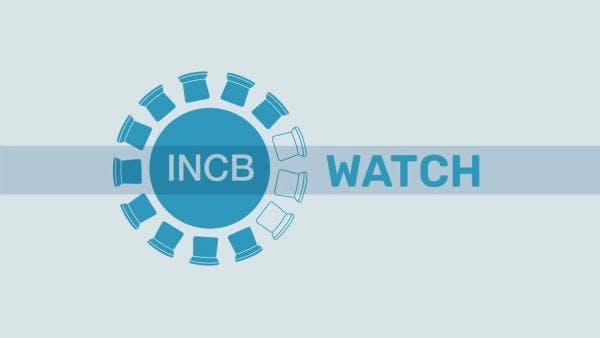IDPC and GDPO release the critique of the INCB Annual Report for 2019
On International Human Rights Day 2020, IDPC and the Global Drug Policy Observatory launched their yearly critique of INCB Annual Report. Through a close reading of the INCB Annual Report for 2019, as well as of prior Annual Reports, in this year’s critique Professor David Bewley-Taylor provides a first-ever account of the evolution of the INCB’s position on human rights and drug policy.
In clear contrast to the CND and the UNODC, in the last ten years the INCB has played an increasing role in the efforts to integrate international drug control, and the human rights systems. The position of the Board has evolved, from a wholesale rejection to acknowledge human rights violations in 2012, to the Annual Report for 2019, which contains a whole subsection on ´respect for human rights in the elaboration and implementation of drug control policy’.
While this is very welcome progress, the critique also shows that the INCB’s current position is characterised to a certain extent by ‘selective reticence’ -or cherry-picking. While the INCB has spoken strong and clear on the crucial issues of extrajudicial killings, the death penalty for drug offences, and compulsory detention centres, much less attention has been paid to key drug policy areas, such as economic and social rights more broadly, and the rights of indigenous people. In that regard, the critique offers some suggestions as to how to close this gap, including the human rights expertise within the Board’s membership, or increasing the cooperation with NGOs and UN human rights bodies based in Geneve.
At the end of the day, the critique argues that there might be an unresolvable tension between the international drug control conventions, and human rights norms and obligations. An example in point might by the INCB’s rejection to approach the issues of legal regulation of scheduled drugs through human rights lenses. We will continue to follow closely the actions of the INCB, to see if it proves this thesis proves wrong.
Topics
Regions
Related Profiles
- International Narcotics Control Board (INCB)
